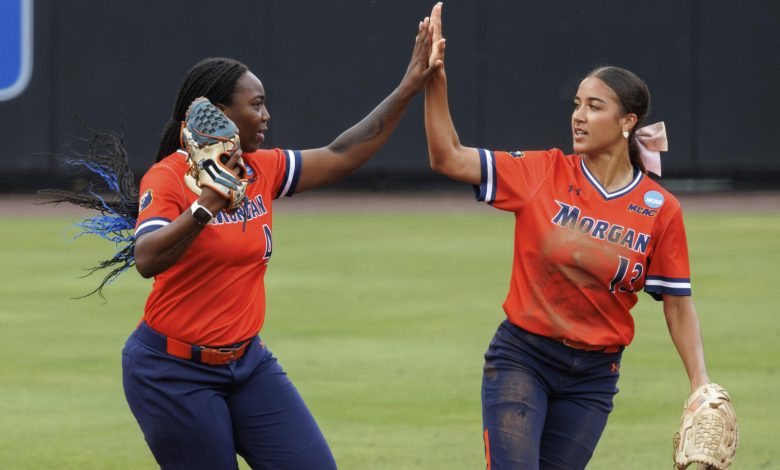What potential effects would the upcoming House settlement have on Auburn’s non-revenue sports?

As college athletics continues to evolve, the financial landscape surrounding college programs has become more complex, especially for non-revenue sports. Recently, news surrounding a potential House settlement related to college athletics has left many wondering what effects it could have on schools, particularly in terms of their non-revenue sports. For institutions like Auburn University, which have a robust athletic program that spans a wide array of sports beyond just football and basketball, the implications of any settlement could be significant.
Non-revenue sports, which include everything from track and field to swimming and soccer, are often seen as the backbone of a university’s athletic diversity. These programs may not bring in the multimillion-dollar revenue streams associated with football and basketball, but they are integral to a university’s student-athlete experience, brand identity, and overall campus culture. Understanding the potential ramifications of the House settlement on these sports is crucial for stakeholders at Auburn and across the country.
This article will explore the potential effects of the upcoming House settlement on Auburn’s non-revenue sports, including the financial implications, the impact on scholarships and recruitment, potential program cuts or restructuring, and how Auburn might navigate this uncertain terrain. Additionally, we’ll explore the broader context of NCAA reforms and their role in shaping the future of non-revenue sports.
1. Understanding the House Settlement
Before diving into the specific effects on non-revenue sports, it’s important to first understand what the House settlement refers to. The House settlement is a proposal that has been making waves in the college athletics world. While the specifics of the settlement are still emerging, it generally revolves around issues related to NIL (Name, Image, and Likeness) deals, student-athlete compensation, and the overall revenue distribution in college athletics.
The House settlement could result in a significant redistribution of funds within athletic departments, potentially shifting how resources are allocated across different sports. This settlement is being looked at as a possible framework to resolve ongoing legal battles and NCAA-related controversies that have put pressure on institutions to reform how they operate financially.
For schools like Auburn, the effects of this settlement could be multi-faceted. While much of the attention has been on football and basketball, there are significant questions about how the proposed changes will impact non-revenue sports—athletic programs that do not bring in large sums of money but still provide valuable opportunities for student-athletes.
2. Financial Implications for Non-Revenue Sports
The most immediate concern with any change in college athletics finance is how it will affect the funding of non-revenue sports. These sports rely heavily on institutional support, private donations, and sometimes conference funds to maintain operations. While football and basketball bring in the bulk of athletic department revenues, it’s often the other sports that help build a school’s reputation in a more holistic way, especially when it comes to recruiting and branding.
The potential redistribution of funds from the settlement could lead to changes in how schools allocate their resources. If more money is funneled into NIL deals for football and basketball players, Auburn and other schools may face pressure to reallocate funds from non-revenue sports to support these higher-profile programs. This could result in significant budget cuts for sports such as cross country, gymnastics, softball, soccer, and tennis, which could be forced to compete for fewer financial resources.
Furthermore, as NIL deals and compensation packages grow, the pool of money available for non-revenue sports may shrink, forcing schools to either reduce the number of athletes they support or find alternative sources of income to fill the gap. Schools that are already facing financial struggles might be forced to scale back their athletic programs entirely, including cuts to coaching staff, facilities, and scholarships for non-revenue sports. For Auburn, this could mean a re-evaluation of its commitment to offering a wide range of athletic opportunities for its student-athletes.
3. Scholarship Impact: How Will Auburn Manage Athlete Support?
Scholarships are the lifeblood of non-revenue sports, and any shifts in funding from the House settlement could have a direct impact on how many scholarships Auburn can offer in these programs. While football and basketball scholarships are relatively standardized, non-revenue sports often rely on varying levels of institutional support to cover the costs of their athletes.
For Auburn’s non-revenue sports, the biggest concern revolves around scholarship funding. These sports tend to operate with smaller rosters, and the funding for each athlete is often more expensive in terms of maintaining competitive programs. If Auburn’s athletic department faces financial pressure from reallocating funds to high-profile sports, there is a strong possibility that scholarships for non-revenue athletes will be reduced or even eliminated.
A reduction in scholarship availability could have several negative consequences for non-revenue sports:
- Recruiting challenges: Auburn would be forced to reduce the number of student-athletes they can recruit for non-revenue sports. This could diminish the overall competitiveness and depth of these programs, as talented athletes may seek opportunities at schools with more generous scholarship offerings.
- Quality of competition: Smaller scholarship pools could impact the quality of teams in non-revenue sports, especially in sports like track and field and swimming, where individual talent is crucial to success. With fewer scholarships available, Auburn’s ability to maintain its competitive edge could be compromised.
- Athlete experience: For many student-athletes in non-revenue sports, scholarships aren’t just financial support—they’re the reason they are able to attend college in the first place. Reductions in scholarships could lead to fewer opportunities for those athletes, potentially even resulting in athletes leaving college programs or choosing not to compete in certain sports altogether.
4. Potential Program Cuts or Restructuring
In the worst-case scenario, the financial adjustments resulting from the House settlement could force Auburn to make more drastic decisions about its non-revenue sports. Many universities have already been forced to cut programs in the past due to financial constraints or shifting priorities. Schools like Stanford and Bowling Green have made headlines in recent years for eliminating non-revenue sports in response to budget cuts.
Auburn, despite its strong athletic tradition, may not be immune to these pressures. If the financial restructuring resulting from the House settlement leads to significant budget constraints, Auburn could be forced to consider cutting or restructuring some of its non-revenue sports. This could include:
- Eliminating underperforming sports: If certain sports at Auburn are consistently underfunded or underperforming in terms of recruiting, attendance, and overall interest, the school could choose to eliminate these programs as a cost-saving measure.
- Reducing team size: Instead of eliminating entire sports programs, Auburn might opt to reduce the size of rosters across multiple sports. This would allow the school to maintain the programs but with fewer athletes, which could reduce scholarship and operational costs.
- Coaching staff reductions: Another potential outcome is that Auburn might scale back its coaching staffs in non-revenue sports. A reduction in the number of coaches could make it harder for the programs to maintain the same level of quality coaching, potentially impacting both recruitment and performance on the field.
5. Impact on Recruiting and National Standing
For a school like Auburn, known for its high level of competition across many sports, the potential for cuts or restructuring in non-revenue programs could have long-term effects on its national standing. Non-revenue sports often serve as a showcase for athletes who might not necessarily play on the football or basketball fields but still represent the university with distinction.
If Auburn were to reduce its investment in these programs, it could have a ripple effect on recruiting, particularly in sports like women’s basketball, soccer, and volleyball, where strong recruiting is essential to maintaining competitiveness. The quality of recruitment could diminish as high school athletes opt to play at universities where opportunities are more abundant, leading to further performance declines and weaker national standing.
Additionally, Auburn’s non-revenue sports programs often provide a sense of identity for alumni and fans who may not follow football or basketball as closely. If these programs were to lose their prestige due to financial constraints, Auburn could face a loss of support from these important community stakeholders.
6. How Auburn Might Navigate These Changes
Despite these potential challenges, Auburn is well-positioned to adapt to the shifting landscape of college athletics. The university already has a strong history of success in non-revenue sports and is well-regarded for its commitment to athletic diversity. To navigate the potential effects of the House settlement, Auburn might consider the following strategies:
- Prioritize key programs: Auburn can focus on the sports that have historically brought in the most success and community support, such as women’s soccer and softball. By directing resources to these high-profile non-revenue programs, Auburn can ensure that it maintains competitiveness while mitigating the effects of funding cuts to other sports.
- Leverage private donations: Auburn has a strong base of athletic supporters, and fundraising efforts could play a significant role in securing additional funding for non-revenue sports. Endowment funds and corporate sponsorships could help cushion the financial blows that may come from the House settlement.
- Aggressive recruitment of NIL deals: Auburn could tap into NIL opportunities to support non-revenue sports. While the focus has been on football and basketball, NIL deals for athletes in other sports could help offset funding losses and allow programs to remain competitive.









